Plunge into a Thriving Career in Aquaculture, Aquarium Science, and Aquaponics at UNE
Take a deep dive into the mysterious world beneath the water’s surface. Become skilled in caring for the aquatic animals and plants that populate our zoos and aquariums and learn the intricacies of the fastest growing sector of the food industry: the cultivation of marine and freshwater species.
With the only Bachelor of Science in Aquaculture, Aquarium Science, and Aquaponics in the U.S., UNE is the ideal place for your studies — and our unique riverside and oceanfront campus offers endless opportunities for hands-on learning.
When you graduate, you’ll be ready for a range of aquatic science professions in the fields of marine and freshwater aquaculture and in the educational, maintenance, and design needs of local, regional, and national aquarium museums and businesses.
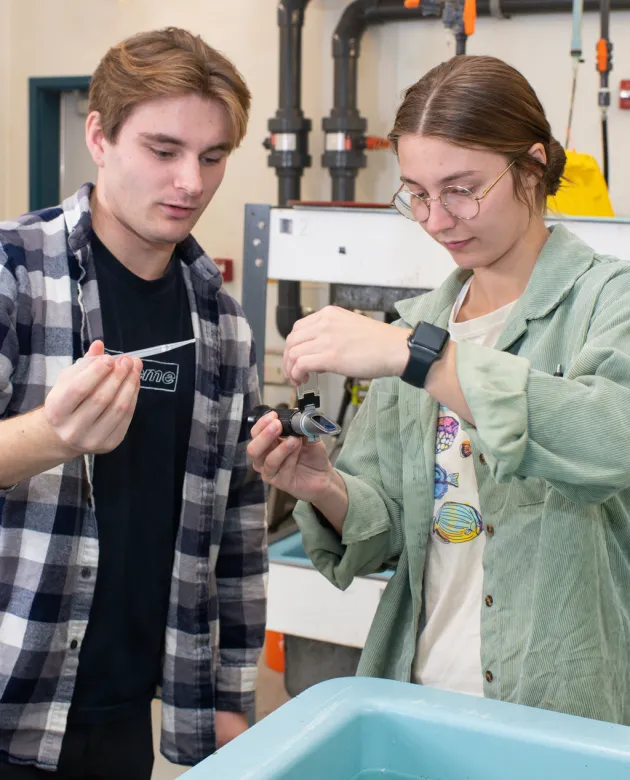
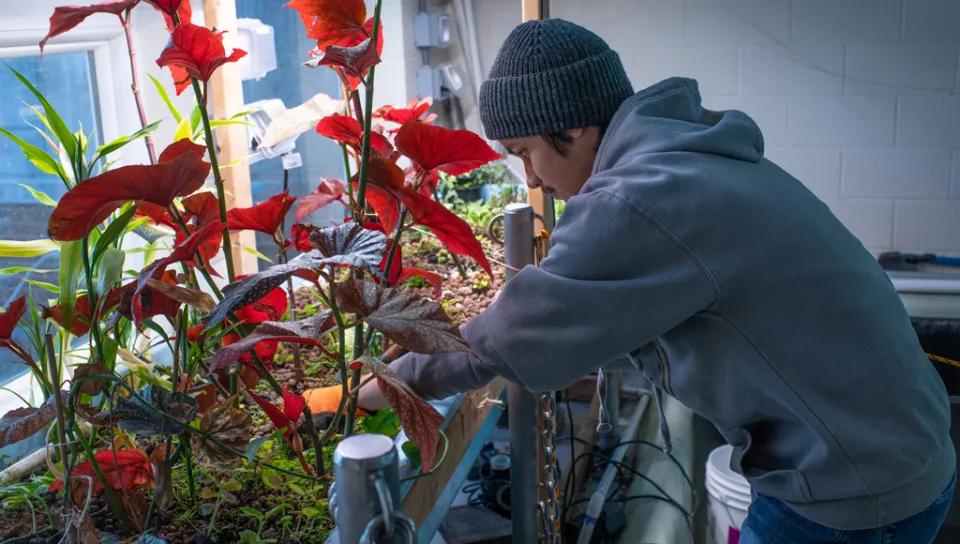
Why UNE for Your Bachelor of Science in Aquaculture, Aquarium Science, and Aquaponics?
Located at the convergence of the Saco River and Atlantic Ocean, we offer direct access to both fresh and salt waters as well as cutting-edge facilities. Other benefits of our program include:
- Recirculating aquaculture, aquaponics, and flow-through seawater systems
- Aquarium Science and Conservation Lab
- Zebrafish facility
- On-campus administration of AALSO (Aquatic Animal Life Support Organization) Level 1 Certification exam
What Will You Study? Aquaculture, Aquarium Science, and Aquaponics Curriculum Overview
There are many ways you can navigate this major. The following are some examples of the exciting courses that you can take:
- Principles of Aquaculture
- Techniques in Finfish and Shellfish Culture
- Health, Nutrition, and Feeding of Cultured Organisms
- Fish Genetics
- Principles of Aquarium Operations and Science
- Environmental Microbiology
Curriculum
| Nor’easter Core Requirements | Credits |
|---|---|
| Total Credits | 40 |
| Program Required Courses | Credits |
|---|---|
| BIO 214/214L – Genetics w/Lab | 4 |
| BIO 221 – Principles of Aquaculture | 3 |
| BIO 222/222L – Finfish/Shellfish Culture Tech w/Lab | 4 |
| BIO 223/223L – Hlth, Nutr, Feed Cultured Org w/Lab | 4 |
| BIO 234/234L – Environmental Microbiology w/Lab | 4 |
| BIO 323/323L – Aquarium Science and Operations w/Lab | 4 |
| BUMG 313 – Social Innovation and Entrepreneurship or BUMK 312 – Entrepreneurship/Sml Business | 3 |
| CHE 130/130L – Principles of Chemistry w/Lab or CHE 150/150L – University General Chem I w/Lab or CHE 110/110L – General Chemistry I w/Lab | 4 |
| GIS 161 – GIS I: Fundamentals of Geospatial Science and Technology | 3 |
| MAR 105/105L – Ecology and Evolution of Marine Organisms w/Lab | 4 – Fulfills Scientific Method Core |
| MAR 106/106L – Cellular and Molecular Biology of Marine Organisms w/Lab | 4 |
| MAR 150/150L – Discovering the Ocean Environment w/Lab or MAR 270/270L – Oceanography w/Lab | 4 |
| MAR 235 – Sustainable Harvest of Aquatic Organisms | 3 |
| MAR 250/250L – Marine Biology w/Lab | 4 |
| MAR 305/305L – Aquatic Health Management w/Lab | 4 |
| MAR 495 – Adv Marine Science Internship | 4 |
| MAT 150 – Statistics for Life Sciences or MAT 151 – Statistics for Environmental Sciences | 3 – Fulfills Quantitative Reasoning Core |
| One (1) course Cellular and Molecular Biology Topic Area Course or Physiology Topic Area Course or Ecology/Evolutionary Biology Topic Area Course* | 3–4 |
| Total Credits | 66–67 |
| Minimum Total Required Credits | 120 |
|---|
Please note: While some courses can fulfill both core and program requirements, the credits earned do not count twice towards the minimum total required credits for the degree.
*Topic area program required courses are to be selected in consultation with an advisor.
Topic Area Courses
Cellular and Molecular Biology
| Cellular and Molecular Biology Area Courses | Credits |
|---|---|
| BIO 203 – Histology | 4 |
| BIO 290 may fulfill Biology Area requirements depending on the subject matter and advisor permission. | 3 |
| BIO 365 – Immunology | 3 |
| BIO 370 – Cell and Molecular Biology | 3 |
| MAR 220 – Cellular and Molecular Approaches in Marine Science with Lab | 4 |
Physiology
| Physiology Area Courses | Credits |
|---|---|
| BIO 208 – Anatomy and Physiology | 4 |
| BIO 245 – Anatomy, Physiology, and Pathophysiology | 4 |
| BIO 290 may fulfill Biology Area requirements depending on the subject matter and advisor permission. | 3 |
| BIO 322 – Comparative Animal Physiology | 3 |
| BIO 404 – Neuroscience | 4 |
| MAR 326 – Experimental Animal Physiology | 3 |
| MAR 424 – Physiological Ecology of Fish | 4 |
Ecology/Evolutionary Biology
| Ecology/Evolutionary Biology Topic Area Course | Credits |
|---|---|
| BIO 290 may fulfill Biology Area requirements depending on the subject matter and advisor permission. | 3 |
| BIO 307 – Conservation Genetics | 3 |
| BIO 328 – Human Evolution | 3 |
| BIO 333 – Evolution | 3 |
| BIO 350 – Ecology | 4 |
| MAR 335 – Animal/Behavioral Ecology | 4 |
| MAR 350 – Marine Ecology with Lab | 4 |
Recommended Elective Credits (Not required)
- MAF 200 – Intro to Marine Pollution
- MAF 210 – Intro to US Ocean Governance
- MAR 316 – Science in Society
- PHI 201 – Bio-Medical Ethics
Graduation Requirements
A minimum grade of C- must be achieved in all science and mathematics courses used toward graduation in any of the programs in the School of Marine and Environmental Programs. A 2.00 cumulative average in sciences is a requirement for graduation in any of the programs in the School of Marine and Environmental Programs.
Students in this major can participate in the pre-health graduate school preparation tracks.
Meet our faculty and professional staff
Study Aquaculture, Aquarium Science, and Aquaponics on the Gulf of Maine
Career Paths for Aquaculture, Aquarium Science, and Aquaponics Grads
While developing a solid foundation in aquatic sciences, you will acquire strong analytical business skills, master vast technical skills, and nurture your ability to work closely with others through classes, research, and internships. Virtually all of our graduates are employed in their field or accepted into graduate school within six months of receiving their diplomas, so we know that our students leave the program ready to succeed. In fact, 95% of UNE graduates are employed or pursuing higher education within one year of graduating.
- Aquatic Collection Curator
- Entrepreneur
- Breeder
- Water Quality Technician
- Fish Farmer
- Veterinarian
- Hatchery Manager
- Fisheries Biologist
Career Advising for Aquaculture, Aquarium Science, and Aquaponics
Whether you have a specific career goal in mind or a vague idea of the field that interests you, Career Advising is here to help you plan your next step.
Aquaculture, Aquarium Science, and Aquaponics Facilities
UNE offers some of the best research, lab, and classroom facilities in the nation for the study of marine science — including state-of-the-art marine science buildings, a fleet of research vessels, and our own research island — and you can access all of them right from our main campus in Biddeford, Maine.
Take a Virtual Tour of the Marine Science Center
Experiential Learning in Aquaculture, Aquarium Science, and Aquaponics
Our Bachelor of Science in Aquaculture, Aquarium Science, and Aquaponics degree program provides a skills-heavy, hands-on curriculum that uses an applied approach to marine and freshwater aquatic sciences, giving you real-world experiences — because studying is not the same as doing.
Clubs for Aquaculture, Aquarium Science, and Aquaponics Majors
- Aquaponics club: Provides learning and leadership opportunities within the School of Marine Programs’ student-managed aquaponics lab. The club is responsible for the establishment and maintenance of systems within the lab space and for tending to the fish and plants the systems are centered around. Club members receive hands-on experience with the plumbing and infrastructure required for recirculating aquaculture systems, as well as IACUC training on how to properly care for the fish in the system in compliance with federal regulations. The club’s efforts culminate in the display of edible plants at the living wall in the commons and in the Edible Campus Markets held twice a year to augment the UNE Sustainability Office’s Edible Campus Initiative.
- Aquarium club: Students are given the opportunity to learn and take care of fresh and saltwater tanks. Students learn about different species of fish and how to take care of an aquarium. These students are chosen by the advisor to help with care and maintenance.
Internships in Aquaculture, Aquarium Science, and Aquaponics
Our active community partnership with many organizations provides work experience at diverse sites, including:
- Nonesuch Oyster Co.
- New England Aquarium Services
- Saco Salmon Restoration Alliance and Hatchery
- Gaia Live
- Easy Aquariums
For more information email the Academic and Career Advising Center at advising@une.edu.
Skills and Opportunities learned in Aquaculture, Aquarium Science, and Aquaponics
- Learn to care for aquatic animals and plants
- Design and operate aquaponics systems
- Master the principles of water movement and filtration
- Perform your own research, beginning your first year
- Attend and present at national conferences
Aquaculture, Aquarium Science, and Aquaponics Research Opportunities
Undergraduate research is an essential part of our programs, no matter which major you choose. You will conduct research in the field through your regular coursework beginning in your freshman year, with additional opportunities to gain experience through faculty labs and multi-institutional initiatives. You will perform research beside quality faculty with decades of industry experience and research.
Research Areas in Aquaculture, Aquarium Science, and Aquaponics
The field of Marine Science is as broad and diverse as the vast oceans that cover most of our planet. At UNE we touch upon all facets of marine science with special focuses in the following areas of research.
- Applied Marine Technology
- Biology of Marine Organisms
- Food from the Ocean
- Human Impacts on the Ocean
Learn About Aquaculture Research at UNE
Applied Marine Technology
Applied marine technology is a crucial marine programs research area that cuts across all others. Robotics, research vessels, remote and autonomous underwater vehicles, environmental monitoring, and modeling are all vital tools that enable modern marine research to occur. Researchers in this area are interested in innovations in and novel applications for marine technology.
Part of our dedication to experiential learning includes providing opportunities to garner real-world skills that make you sought after in the job market and graduate education institutions. A shining example of this is our association with Aquatic Animal Life Support Operators (AALSO). AALSO is a 501 c6 nonprofit organization that focuses on the education and training of aquatic life support operators around the world. AALSO members are those behind the scenes at research institutions and large public aquariums around the world who design, construct, and maintain large aquatic husbandry systems. AALSO provides professional credentialing and proficiency certifications that carry real weight in the industry. UNE is one of only two academic institutions who have been approved by AALSO to administer these tests to our students. Meaning you can walk out the door with a degree in hand, and a professional industry certification in your back pocket.
Researchers:
Boats, for obvious reasons, are important to marine research. At UNE we are fortunate enough to have a fleet of research and education vessels [ATS1] from 18’ to 32’ that are utilized in our programs. Add to this our faculty and professional staff with professional vessel operation credentials and experience operating and conducting science aboard ships and research vessels all over the world — and UNE Marine programs are well suited to help you gain the important technical knowledge needed to be proficient and safe both operating and conducting research at sea.
Researchers: Tim Arienti
The oceans cover more than 70% of the planet. The interconnectivity of life and ecosystems in the sea are incredibly complex, and distinctly linked to both the land and our atmosphere. Such complexity is nearly impossible to understand without the powerful predictive capacities of computer models. These models, based on data collected in the field, from satellites, the geological record, and elsewhere, are used to forecast (and hind-cast) everything from fish populations and food webs to ocean circulation, hurricanes, and climate change.
Researchers:
Ocean robotics and smart technology — in the form of underwater drones, manned submersibles, water quality sensors, oceanographic buoys, and camera systems — is a rapidly growing, and increasingly important marine field. In the age of technology, these tools are becoming vital components in enabling cutting-edge marine research across the board.
Researchers:
Biology of Marine Organisms
Our marine programs faculty and professional staff conduct a wide range of research in the areas of biology and ecology of marine organisms. This research area is very broad and ranges from marine genetics to the migration patterns of large animals like sharks, seals, and whales. From seaweed to sharks — plankton to pinnipeds (seals!) our team covers it all.
Food web dynamics focuses on how energy moves through organisms in an ecosystem through primary productivity (photosynthesis) and consumers. Researchers in our Marine programs study these interactions to create a “who’s eating who” web of connections between organisms in an ecosystem.
Researchers: Carrie Byron, Ph.D.
Invasive species are any species introduced to an ecosystem in which they are not native that then go on to cause disruption or harm to the functioning of that ecosystem. Marine organisms are adept at hitching rides in ballast water of ships, through hitchhiking on marine debris, or even through deliberate introduction. Researchers at UNE study these organisms and their ecological interactions and impacts in the Gulf of Maine and beyond.
Researchers: Markus Frederich, Ph.D.
There are more than 20,000 species of marine and fresh water bony fish on the planet, while mollusks alone (snails, bivalves, etc.) comprise more than 85,000 known species. Of all the expansive biodiversity contained within our oceans, the vast majority is contained within the marine invertebrates. With so much diversity, the opportunities for research in marine invertebrates are almost inexhaustible.
Researchers:
Life in the sea poses challenges unique to oceanic organisms, especially the smallest of those (microorganisms). By virtue of being immersed in water, they are at the mercy of the tides, currents, chemistry, and geology of the sea. Oceanography is the study of these physical properties and processes in the ocean — physical, chemical, and geological. Oceanography researchers at UNE study how these oceanographic components interact with each other and affect life in the sea.
Researchers:
With few exceptions, marine microbes and plankton form the base of the marine food web. Small but mighty, the plankton are the fuel for life in the sea. Researchers within our Marine programs study many facets of the biology, ecology, and even chemistry of this important and diverse group of organisms.
Researchers:
The largest organisms in an ecosystem are often sentinels of ecosystem health and serve key roles in the health and balance of our oceans. UNE researchers study the biology and ecology of sharks and marine mammals in the Gulf of Maine and across the globe.
Food from the Ocean
With a global human population headed towards 10 billion by 2050, understanding the interactions between the ocean and what we eat is more important than ever. Our location on the coast of Maine has a deep heritage and connections to the people and communities who have harvested food from the sea, and the ecosystems that provide it. We have robust research and education programs in this focus area, including fisheries science and management, ecological aquaculture, marine entrepreneurship, migration of highly migratory species, and food web ecology.
Fisheries science and management are both distinct disciplines that are highly interwoven. Fisheries science creates the knowledge and data used in order for fisheries management to make the best possible policies to manage a fishery. The policies and the priorities set forth by management then in turn creates the framework for fisheries science to design and conduct research. At UNE, we have researchers with expertise on both sides of this important coin.
Researchers: Susan Farady
Globally, the saltwater ornamental fish and aquarium industry is valued at $15 billion, resulting in the importation of more than 400 fish species. And yet, only 10% of these fish are cultured. Ornamental aquaculture is the application of aquaculture techniques and protocols to produce fish and other organisms used for decorative purposes. This practice can help greatly reduce pressure on wild fish populations and increase the sustainability of a hobby growing rapidly on a global scale.
Researchers:
The global human population is projected to be more than 10 billion people by 2050. That is a lot of mouths to feed. And yet, while the oceans cover more than 70% of our planet, only 2% of food production (including all fisheries and ocean farms) comes from the sea. In the future there will be by necessity, increased pressure on global oceans to produce food. Much of this will come from ocean-farms producing not only fish, but shellfish, seaweeds, and other marine foods. Researchers in our Marine programs study the entire suite of issues pertaining to seafood and aquaculture.
Researchers:
Human Impacts on the Ocean
Evidence of human impact on the ocean is everywhere, not just limited to our coastal oceans. Plastics and chemicals have been documented from the deepest depths of the global seas, while climate change affects all aspects of the ocean. More and more, we cannot separate studying the natural ocean environment apart from human influence. Fisheries, microplastics, policy, pollution, conservation, and restoration all fall into this category. UNE marine programs faculty, professional staff, and students are focused on research and solutions across the spectrum of human influence on our seas.
Our climate is changing — rapidly. Its impacts are felt broadly across our planet, especially our oceans, which play crucial roles in mediating, moderating, and shaping the global impacts of accelerating planetary change. This is exemplified in our own backyard, where the Gulf of Maine is warming faster than 90% of all other ocean waters. Rather than a discrete area of study, climate change research at UNE Marine Programs is more of an umbrella. One of the most important planetary challenges of our time, climate change research is integrated by necessity into almost all of our Marine Programs research and scholarship areas of focus.
Researchers:
Not all human impacts on the sea are negative. Human interventions in the forms of conservation and restoration science and policies can produce real and impactful improvement in the marine environment. Ecosystem and habitat restoration, invasive species mitigation and management and ocean advocacy are all part of UNE Marine Programs.
Researchers:
In many ways, the ocean represents a vast resource with the potential for creating economic growth in a sustainable or even restorative fashion. Opportunities here include sustainable fisheries and aquaculture ventures, ocean robotics, sensors and remote sensing, shipping, value-added marine-derived products such as cosmetics and nutraceuticals, even textiles and fashion.
Researchers: Jeri Fox
The ocean is downstream of everything and given a long enough period of time, everything ends up in the ocean. Marine pollution impacts our oceans through many pathways and in many forms: excess nutrients and runoff from urban and agricultural lands, bacteria from our wastewater, chemicals from our industries, and plastics from, well, everywhere…are just a few examples. Researchers in our Marine programs look into how the pollutants impact marine organisms and ecosystems, as well as techniques to mitigate and policies to prevent pollution from entering the ocean.
Researchers:
Research Fellowships in Aquaculture, Aquarium Science, and Aquaponics
In addition to lab classes and faculty lab positions, UNE provides pathways for students to obtain research experience through fellowships from partners and programs including Pratt & Whitney, Bristol Seafood, SEANET, and the Summer Undergraduate Research Experience.
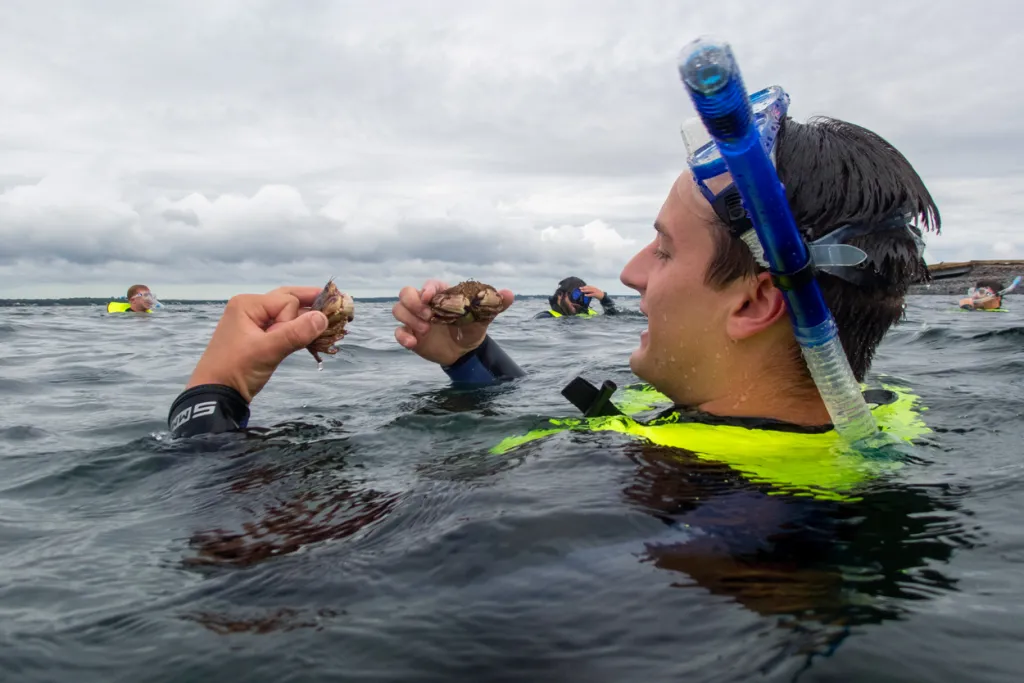
Global Education in Aquaculture, Aquarium Science, and Aquaponics
In addition to opportunities to spend a semester abroad in Tangier, Morocco, or Seville, Spain for the same cost as studying at UNE’s Maine campuses, you may choose to enroll in one of our marine sciences-related travel courses. To enroll in these courses and learn more, visit the Global Education Program website.
Interested in studying abroad? Make a plan with your advisor.
BIO 422/422L: Coral Biology
This fall semester course presents an in-depth study of the biology and taxonomy of corals while examining the ecology of the coral reef system and the future of reefs, concluding with a field lab. You will snorkel in the beautiful lagoons of Ambergris Caye, the Hol Chan and Bacalar Chico Marine Reserves. The group is housed in a field station on the northern tip of Ambergris Caye with access to the reef ecosystem, mangroves, seagrass beds, and jungle.
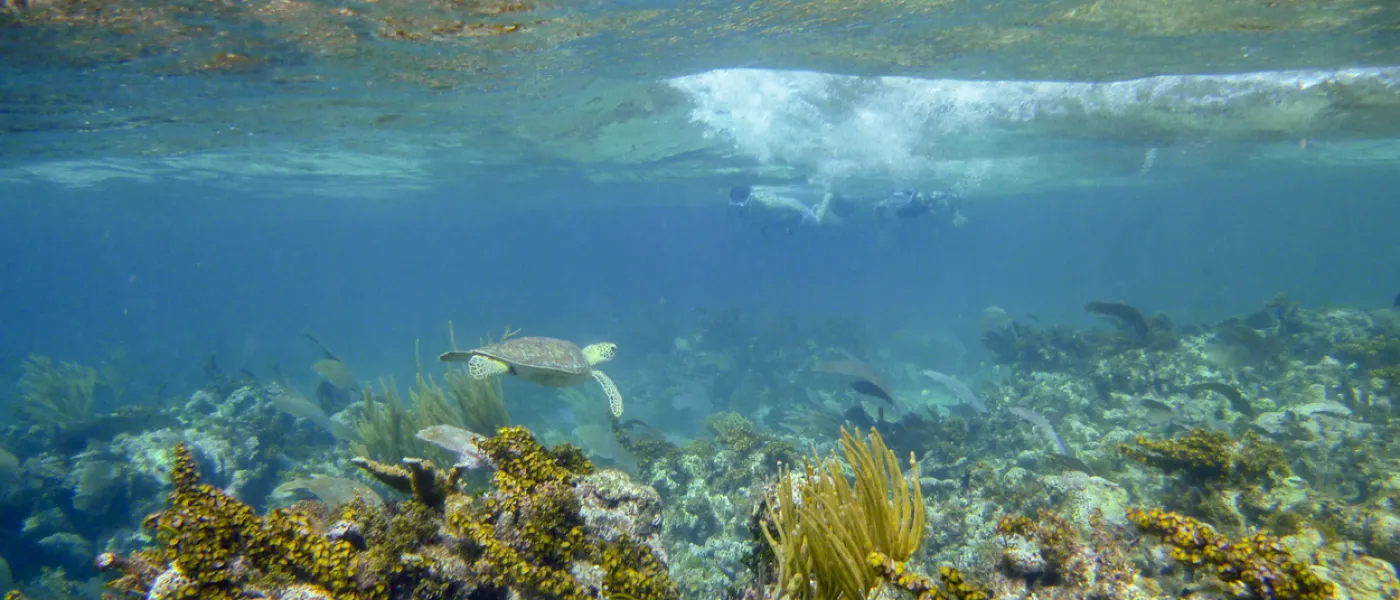
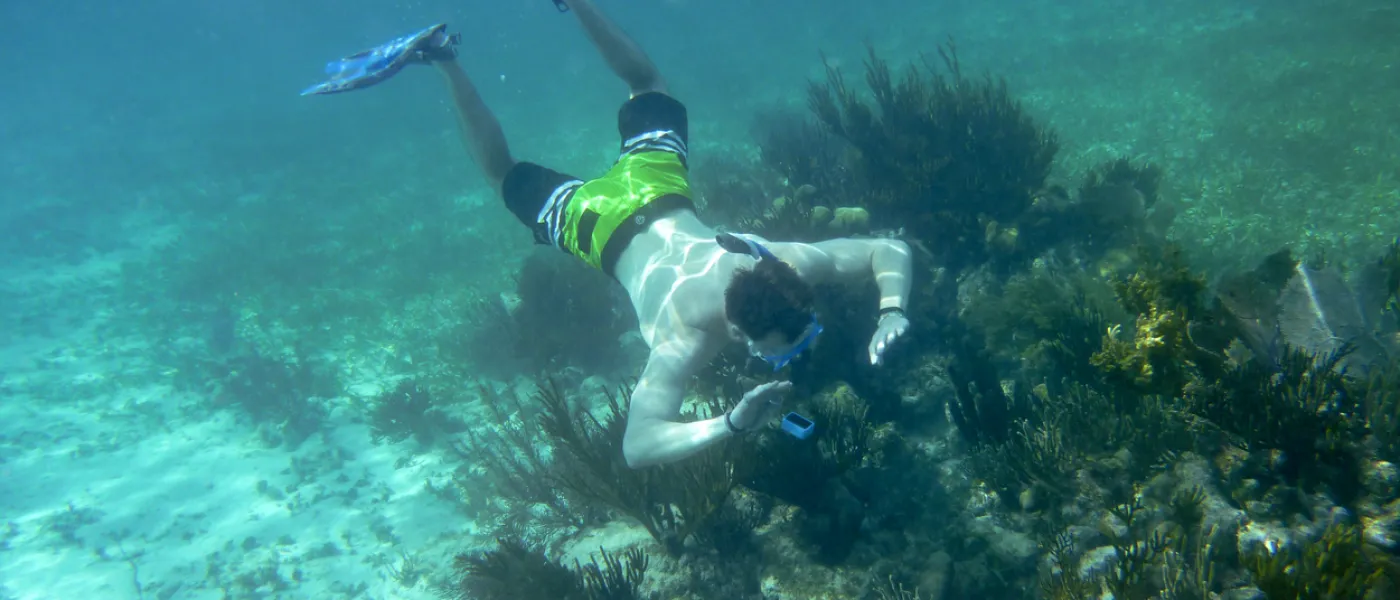
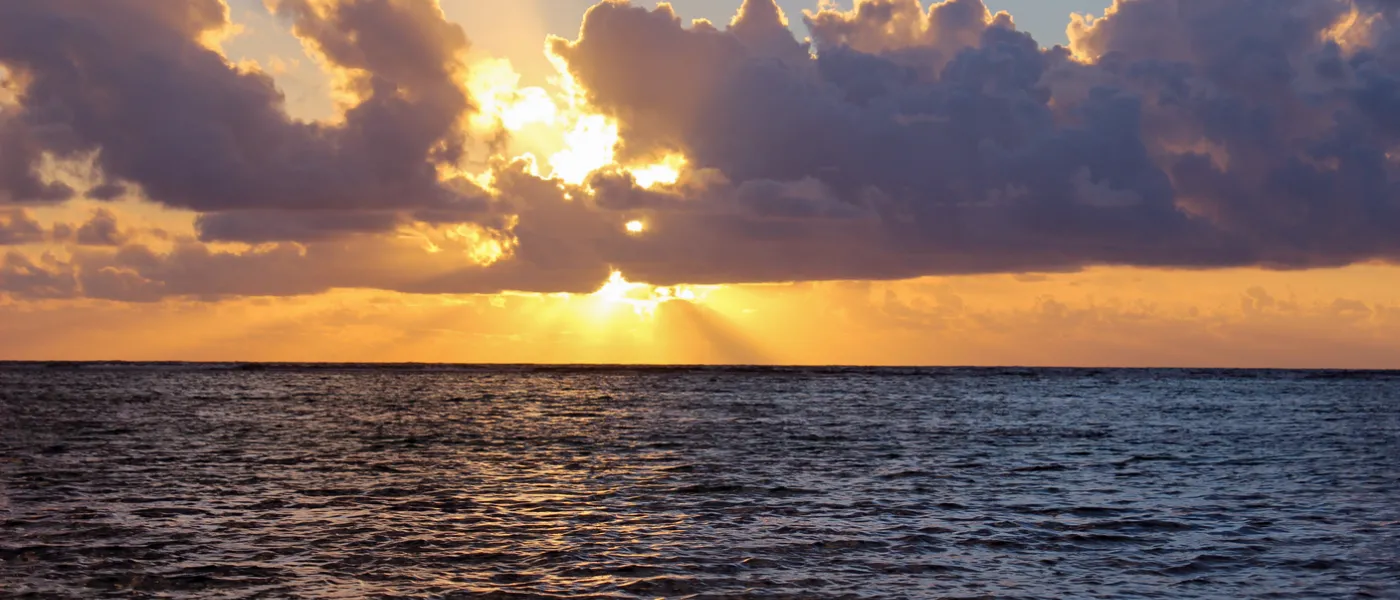
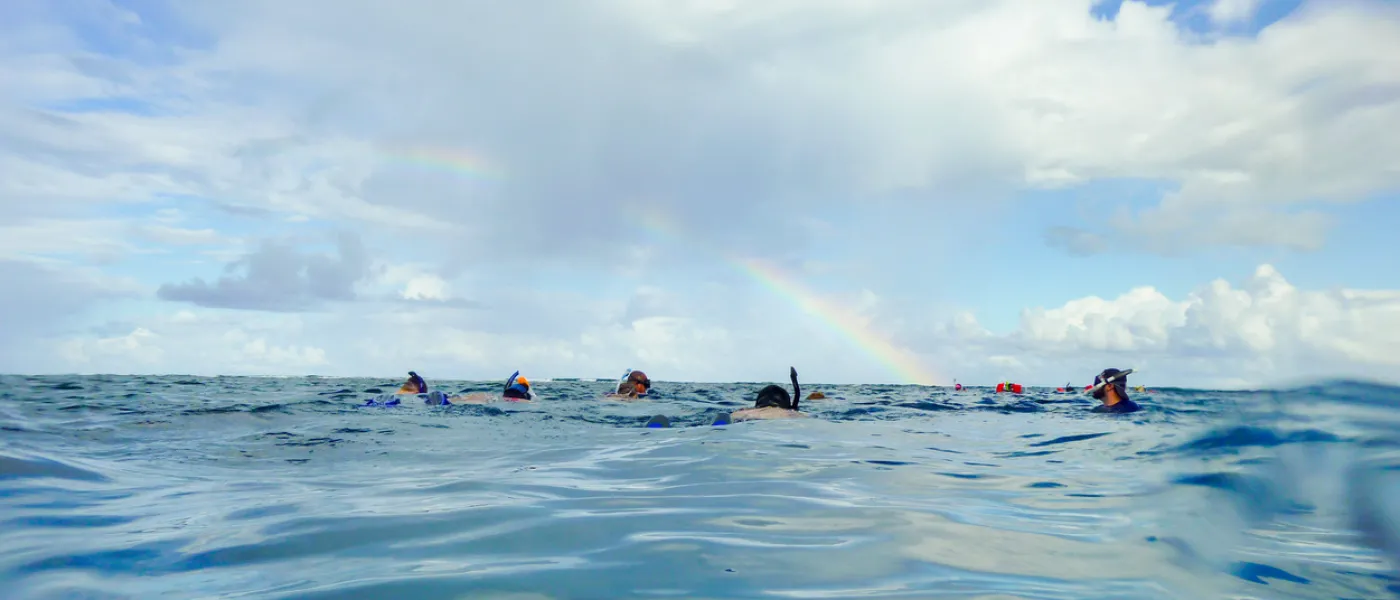
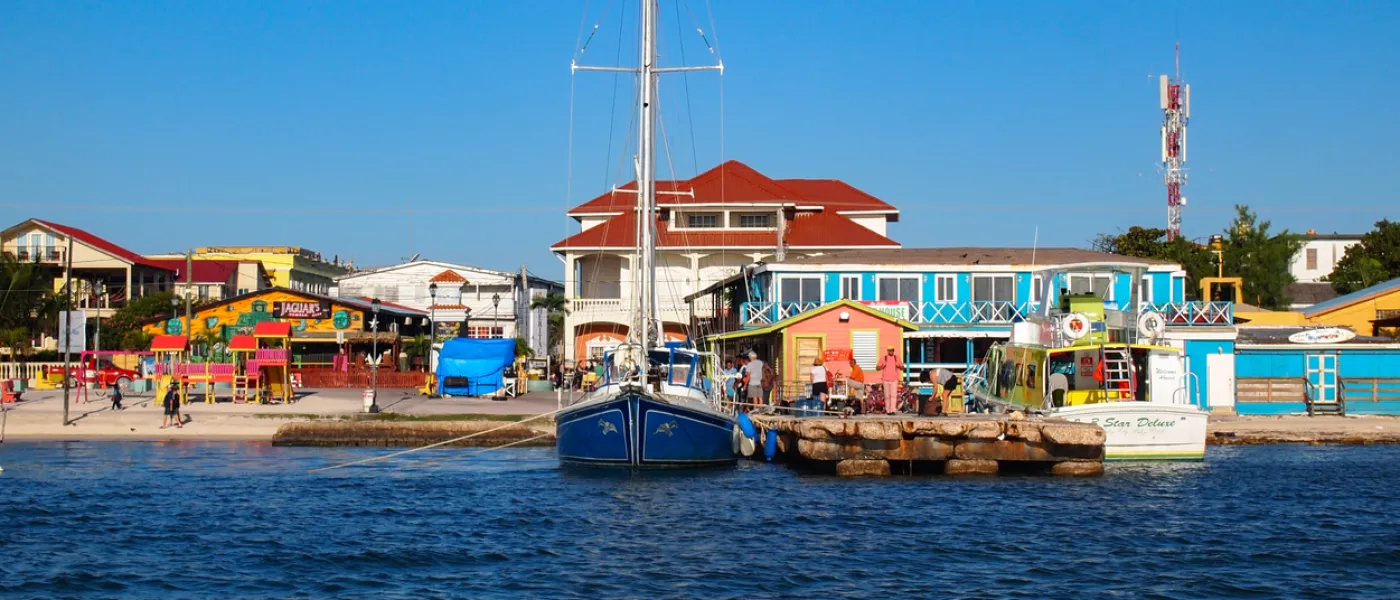
MAR 451: Natural History and Evolution of the Galápagos Fauna
This course is designed to familiarize you with the biota of the Galápagos Islands, island history, ecology, and the behavior and evolution of the islands' animals.
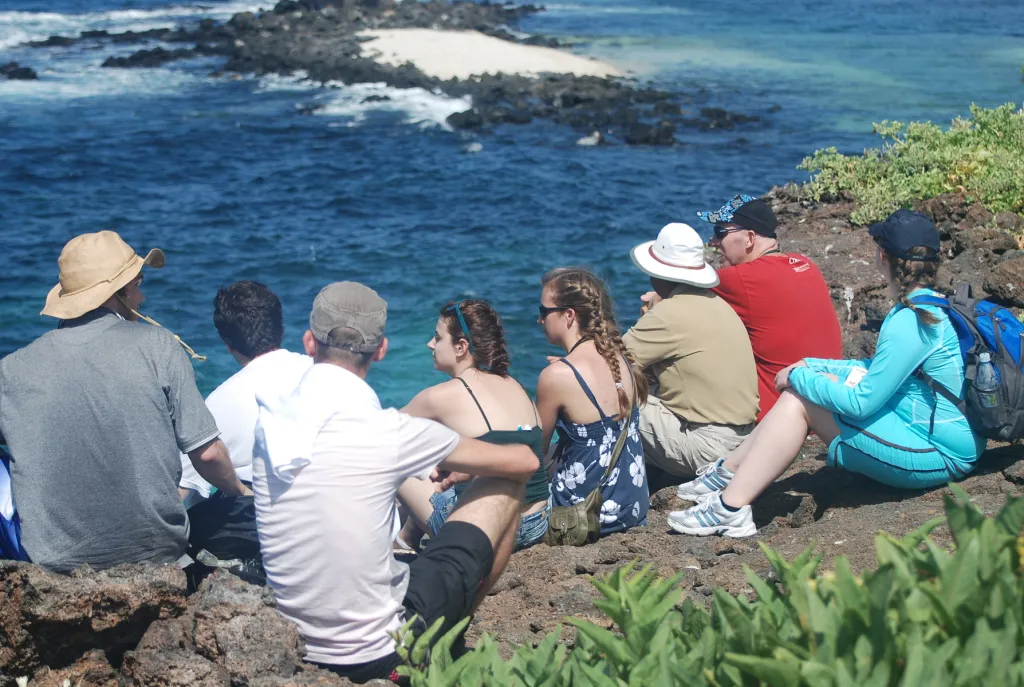
Semester-Long Study Abroad Program
Spend a semester abroad in Akureyri on the northeast coast of Iceland. You'll be studying in Iceland's second-largest urban area surrounded by mountains and fjords.
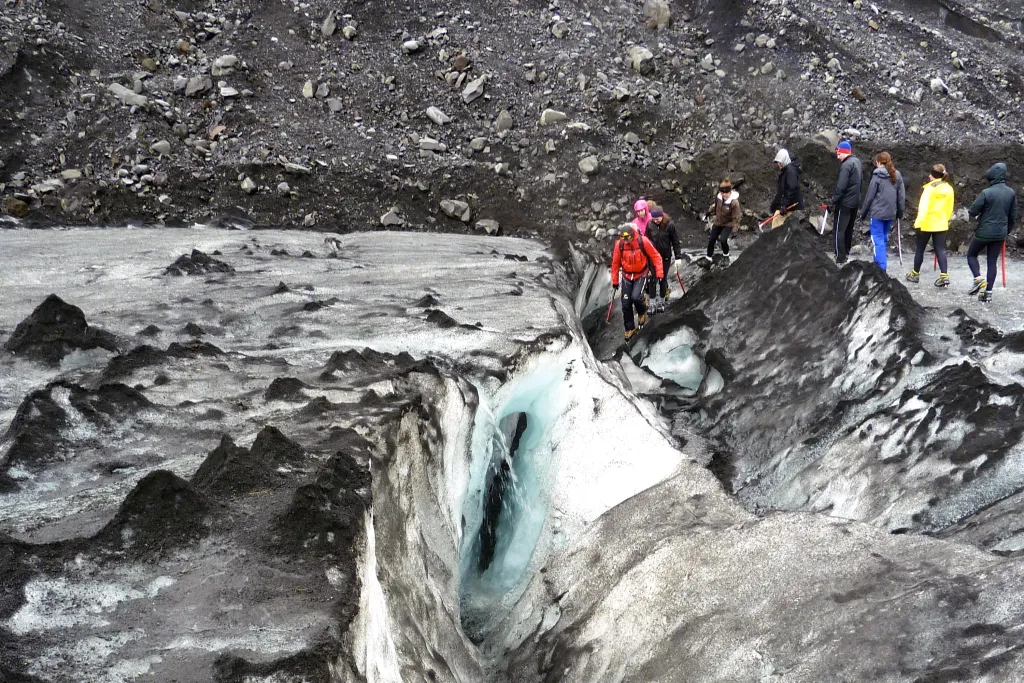
BIO 421: Conservation and Ecology of a Caribbean Island
This course covers topics in the history and geology of the Caribbean, including terrestrial, island, and marine biodiversity, plus the ecology and evolution of populations.
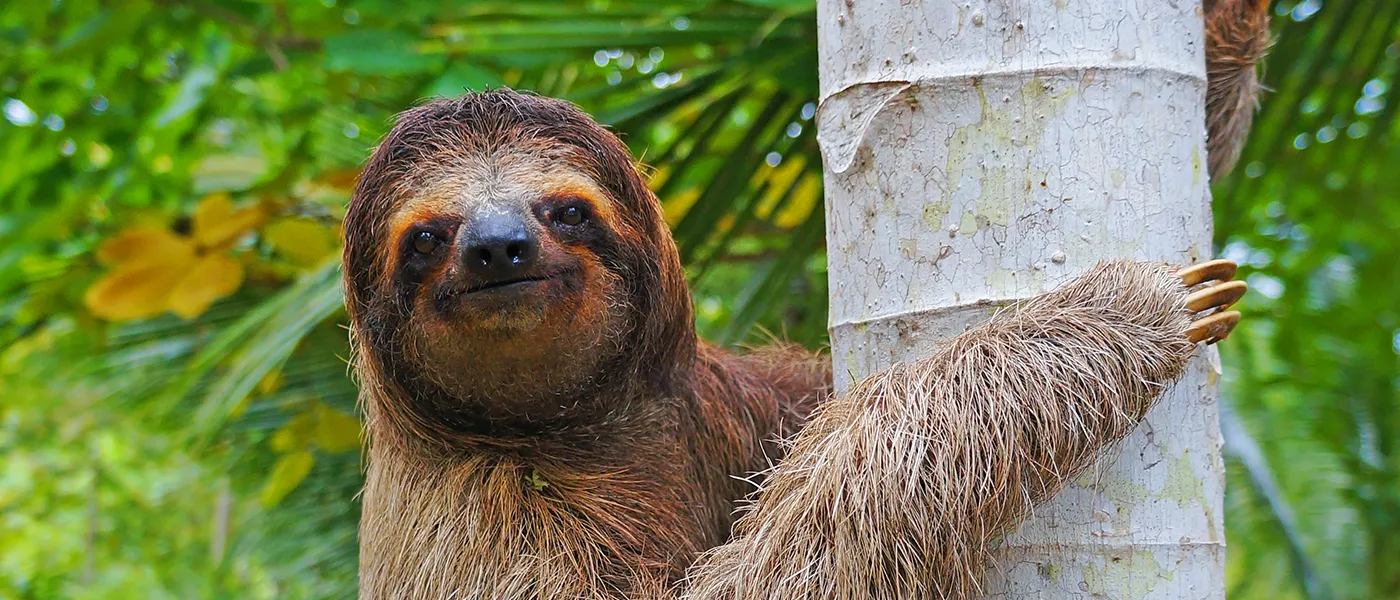
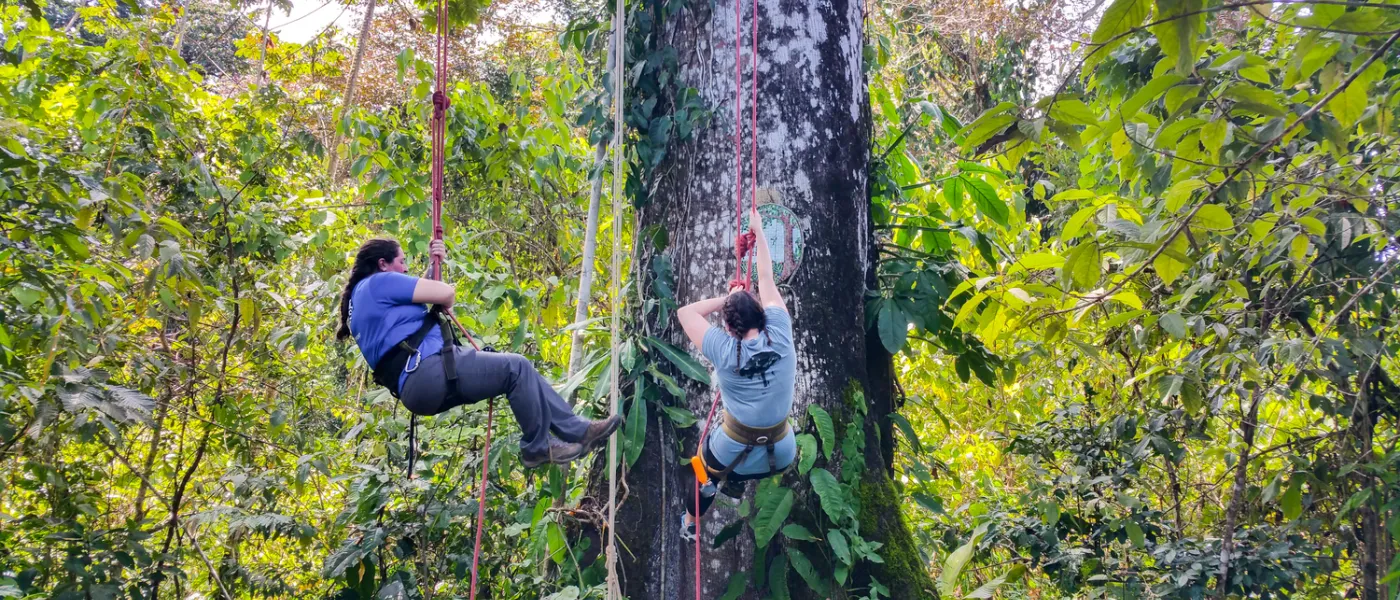

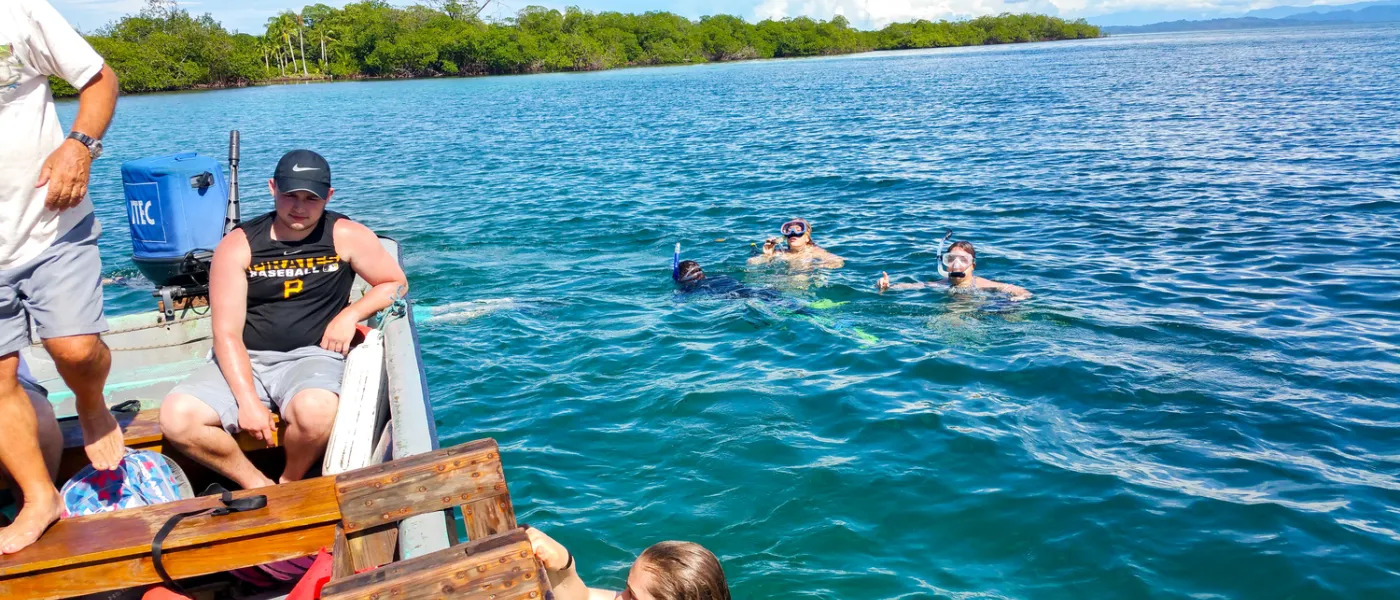
The Institute for North Atlantic Studies of the University of New England is an education and research leader for Maine connected to the North Atlantic/Arctic region grounded in the United Nations Sustainable Development Goals and built to support local to global collaborative approaches to shared challenges and opportunities.
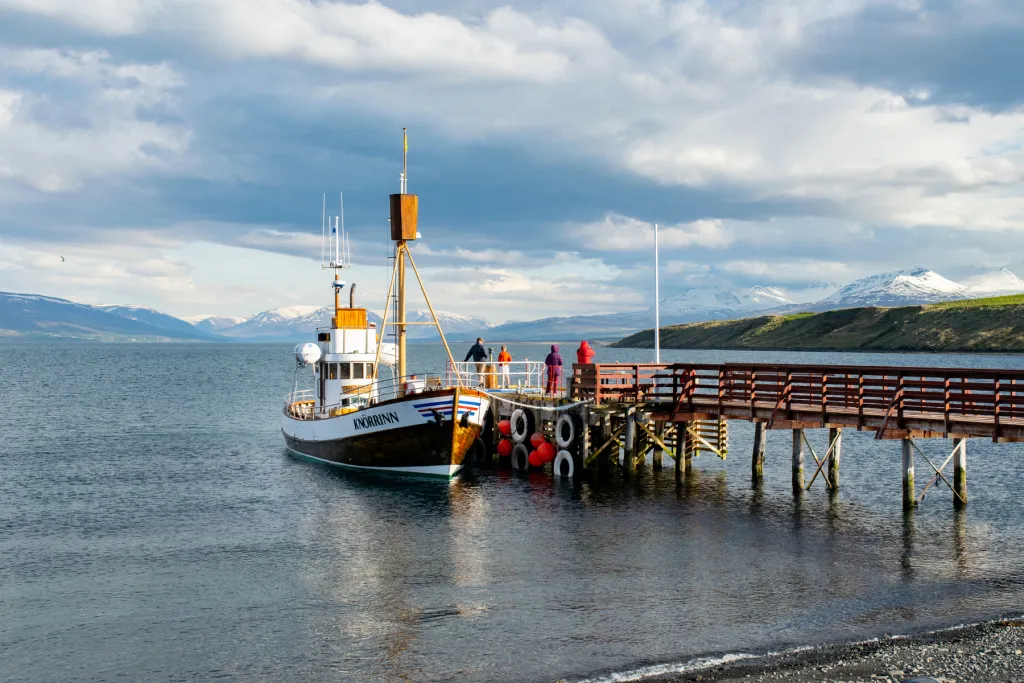
Apply Today
Ready to begin your future in UNE’s Bachelor of Science in Aquaculture, Aquarium Science, and Aquaponics? Get started today.
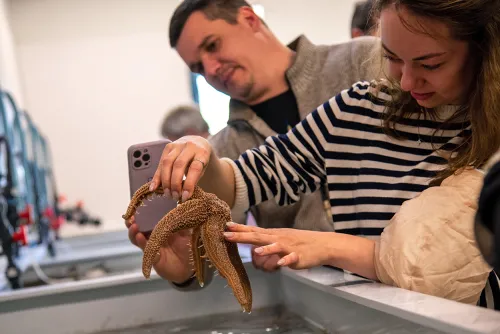
Bachelor of Science in Aquaculture, Aquarium Science, and Aquaponics FAQ
What is aquaculture?
Aquaculture, sometimes called aquafarming, is the practice of breeding, raising, and harvesting aquatic organisms for various purposes, primarily for human consumption. Think of it as the underwater version of traditional agriculture, but instead of crops and livestock, it’s all about fish, shellfish, algae, and other fascinating creatures.
What is aquarium science?
Aquarium science is a fascinating and diverse field that delves into the biology, chemistry, physics, and engineering aspects of maintaining aquatic life in captivity, primarily within aquariums. It’s not just about keeping pretty fish in a tank; it’s about understanding the complex ecosystem within those walls and ensuring the well-being of all its inhabitants.
What is aquaponics?
Aquaponics is a blend of aquaculture (raising fish) and hydroponics (growing plants without soil), creating a symbiotic ecosystem where both thrive. It’s like a miniature, self-sustaining world where fish waste nourishes plants, and the plants, in turn, purify the water for the fish. Aquaponics can be set up in various scales, from small backyard systems to large commercial operations.
What are the benefits of aquaponics?
Aquaponics boasts a range of impressive benefits, making it a compelling choice for sustainable food production. Here are some of the key advantages:
Water conservation
Aquaponics shines in water efficiency, using up to 90% less water compared to traditional agriculture. This closed-loop system recycles water continuously, minimizing waste and maximizing utilization.
Reduced environmental impact
Chemical-free growth is a hallmark of aquaponics. The reliance on natural fish waste eliminates the need for pesticides and fertilizers, minimizing environmental pollution and promoting healthy soil ecosystems.
Increased yields
Nutrient-rich water delivered directly to plant roots fosters rapid and healthy growth. Studies reveal that aquaponic systems can produce up to twice the yield of traditional soil-based methods.
Year-round production
Controlled environments within aquaponic systems allow for consistent temperature and light conditions, enabling year-round cultivation regardless of the weather outside. This provides greater food security and flexibility for growers.
Reduced labor and maintenance
Aquaponic systems require less manual labor than traditional methods. Automated pumps and filtration systems minimize the need for constant monitoring and intervention.
Space optimization
Aquaponic systems can be designed vertically, maximizing space utilization, and allowing for cultivation in areas with limited land. This is particularly advantageous for urban environments.
Organic and healthy food
The absence of harmful chemicals in aquaponics ensures the production of organic food rich in nutrients and free from pesticide residues. This promotes healthier diets for consumers.
Economic benefits
Aquaponics can offer economic opportunities for individuals and communities. The efficient production of high-quality food can generate income for growers and create local food systems that reduce reliance on external suppliers.
Educational and recreational value
Aquaponic systems can be a valuable learning tool for individuals of all ages, fostering an understanding of sustainable food production and ecological relationships. They can also serve as a fun and rewarding hobby, providing fresh, healthy food while creating a beautiful and educational living space.
What can you do with an aquaculture, aquarium science, and aquaponics degree?
Having a degree in aquaculture, aquarium science, and aquaponics allows you to work with aquatic animals and plants that populate our zoos and aquariums. Many UNE students who graduate with this degree also land jobs working in the fastest growing sector of the food industry: the cultivation of marine and freshwater species.
Virtually all UNE B.S. in Aquaculture, Aquarium Science, and Aquaponics graduates are employed in their field or accepted into graduate school within six months of receiving their diplomas. Some of the careers and professions they have pursued include:
- Aquatic Collection Curator
- Entrepreneur
- Breeder
- Water Quality Technician
- Fish Farmer
- Veterinarian
- Hatchery Manager
- Fisheries Biologist
Learn more about UNE’s Bachelor of Science in Aquaculture, Aquarium Science, and Aquaponics
What is the best aquaculture, aquarium science, and aquaponics degree program for me?
Below are a few factors that you should look for when searching for an aquaculture, aquarium science, and aquaponics degree program.
Faculty
Figure out your preferences for an instructor and dive into their academic and professional background. Also consider reviewing faculty research to determine the best fit for your educational journey.
The faculty at UNE’s School of Marine and Environmental Programs are experienced, skilled, and supportive. They provide relevant coursework and research opportunities that equips students to excel in their disciplines. Aquaculture, Aquarium Science, and Aquaponics students at UNE conduct research with faculty in the field through their regular coursework beginning in their freshman year.
Meet faculty and professional staff in UNE’s School of Marine and Environmental Programs
Curriculum
Take a look at the aquaculture, aquarium science, and aquaponics curriculum and see if it includes a hands-on approach to your undergraduate career.
UNE’s Aquaculture, Aquarium Science, and Aquaponics (AAA) degree program provides a skills-heavy, hands-on curriculum that uses an applied approach to marine and freshwater aquatic sciences, giving you real-world experiences — because studying is not the same as doing.
The following are some examples of the exciting courses that you can take as an AAA major:
- Principles of Aquaculture
- Techniques in Finfish and Shellfish Culture
- Health, Nutrition, and Feeding of Cultured Organisms
- Fish Genetics
- Principles of Aquarium Operations & Science
- Environmental Microbiology
Learn more about UNE’s B.S. in Aquaculture, Aquarium Science, and Aquaponics curriculum
Career Goals
Determine if the program offers career advising and qualifies you for a lucrative, rewarding aquaculture career.
As an Aquaculture, Aquarium Science, and Aquaponics student at UNE in Maine, you will develop a solid foundation in aquatic sciences, acquire strong analytical business skills, master vast technical skills, and nurture your ability to work closely with others through classes, research, and internships.
Some examples of the types of careers UNE students have gone on to pursue after graduating with their bachelors in Aquaculture, Aquarium Science, and Aquaponics include:
- Aquatic Collection Curator
- Entrepreneur
- Breeder
- Water Quality Technician
- Fish Farmer
- Veterinarian
- Hatchery Manager
- Fisheries Biologist
UNE Students can benefit from the support of the Academic and Career Advising Center, whether they have a clear career goal or a general interest in a particular field.
Learn more about Career Advising at UNE
Learning Environment
Ask yourself what kind of environment suits you best. Figure out if you want to stay in your state or if you wish to move. See if you will be inspired or challenged by your fellow students and faculty.
UNE offers a great environment for aquaculture, aquarium science, and aquaponics majors. Overall, UNE boasts small class sizes. We have a 12:1 student-to-teacher ratio and an average class size of 20.
With the only Bachelor of Science program in Aquaculture, Aquarium Science, and Aquaponics in the U.S., UNE is the ideal place for your studies. Located at the convergence of the Saco River and Atlantic Ocean, we offer direct access to both fresh and salt waters as well as cutting-edge facilities.
UNE students study abroad at nearly five times the national average. Our Global Education Program offers an array of short-term travel courses to many destinations.
Learn more about study abroad opportunities at UNE
Financial Aid
Consider whether the school you’re interested in provides financial aid or scholarships to support your education.
A UNE undergraduate education is affordable. Our tuition is 16% below the average tuition for private universities in New England. Plus, all incoming full-time undergraduate students at UNE will receive Merit Scholarships in amounts from $5,000 to $22,000 per year.
Learn more about grants and scholarships available to students at UNE
